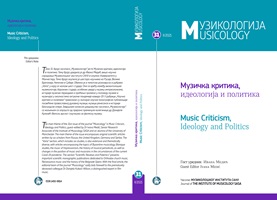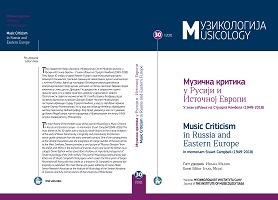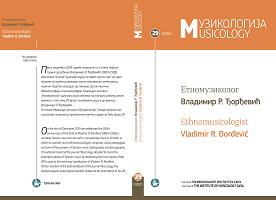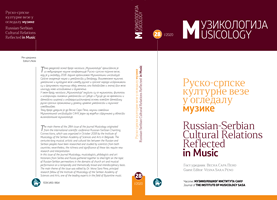
Композитор и његови критичари: рецепција стваралаштва Станојла Рајичића у светлу преломних догађаја за развој српске музике у XX веку
In this article we discuss the critical reception of the work of composer Stanojlo Rajičić (1910–2000), whose presence in the public musical life of Belgrade was noted already in the 1920s, when he was a student at the “Stanković” Music School and then the Belgrade Music School. The critical reception of his compositional work can be followed for almost seven decades. Performances of Rajičić’s works often provoked controversies and polemics – which speak not only about the composer’s oeuvre itself, but even more so about the state of musical life of Belgrade, Serbia and Yugoslavia in the 20th century. Thus we analyze the reception of Rajičić’s work in the light of historical events that crucially influenced the development of Serbian art music throughout the twentieth century. The article is based on the study of extensive archival material preserved at the Institute of Musicology SASA, Radio Belgrade, as well as private collections.
More...


